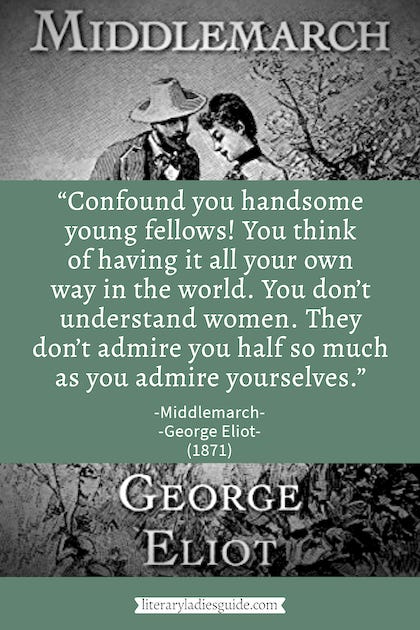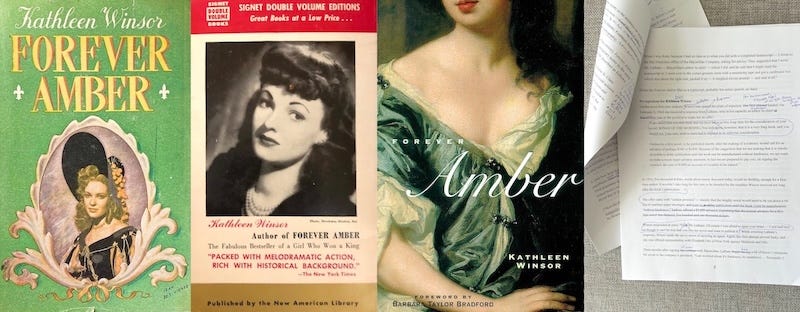Quotable Middlemarch – George Eliot's masterpiece
This classic by Eliot (Mary Ann Evans) can be a roadmap for life and love
Today’s edition of Literary Ladies Lite presents a selection of quotes from Middlemarch by George Eliot (Mary Ann Evans). This 1871 novel has earned a place as one of the great works of English literature, and for many of its devoted readers, serves as a timeless guidebook for life and love.
Middlemarch is one of those those books that readers either adore enough to read over and over, or can’t get into. I’m afraid that I fall into the latter category so far. I’ve tried a couple of times, and I’ve fizzled. I will try again. How about you? Which Middlemarch category are you in?
Some things never change …
Before getting to the heart of today’s subject, I want to let readers know that I’ve been posting in my Notes every couple of days about my current book in progress, tentatively titled Women Writing Dangerously. I’ll be divulging more about the project n September, once I hand in the manuscript. Right now I’m deep in clean-up mode; working on the third draft of this manuscript that’s due in September. Yesterday I worked on the section about Forever Amber, a forgotten, widely banned bestseller of the 1940s. I still need to cut a bunch of it!
. . . . . . . . . .
Now, let’s get back to George Eliot and a selection of wise, witty, and perceptive quotes from Middlemarch …
George Eliot, nom de plume of Mary Ann Evans (1819 – 1880), was an esteemed Victorian-era British author. Her themes were politically and socially perceptive. Middlemarch, The Mill on the Floss, Daniel Deronda, Silas Marner, and pretty much everything else she wrote are considered among the most important works in British literature. In addition to these and other novels, George Eliot also wrote poems, short stories, translations, and essays.
Middlemarch (1871) follows Dorothea Brooke and Tertius Lydgate, two characters destined to enter marriages that promise to be unfulfilling and that conflict with their personal aspirations. Eliot skillfully builds a richly textured picture of a provincial Victorian town, inhabiting it with relatable characters who struggle with love, relationships, and personal ambitions, just like all of us.
. . . . . . . . .
“And, of course men know best about everything, except what women know better.”
Keep reading with a 7-day free trial
Subscribe to Literary Ladies Guide to keep reading this post and get 7 days of free access to the full post archives.





